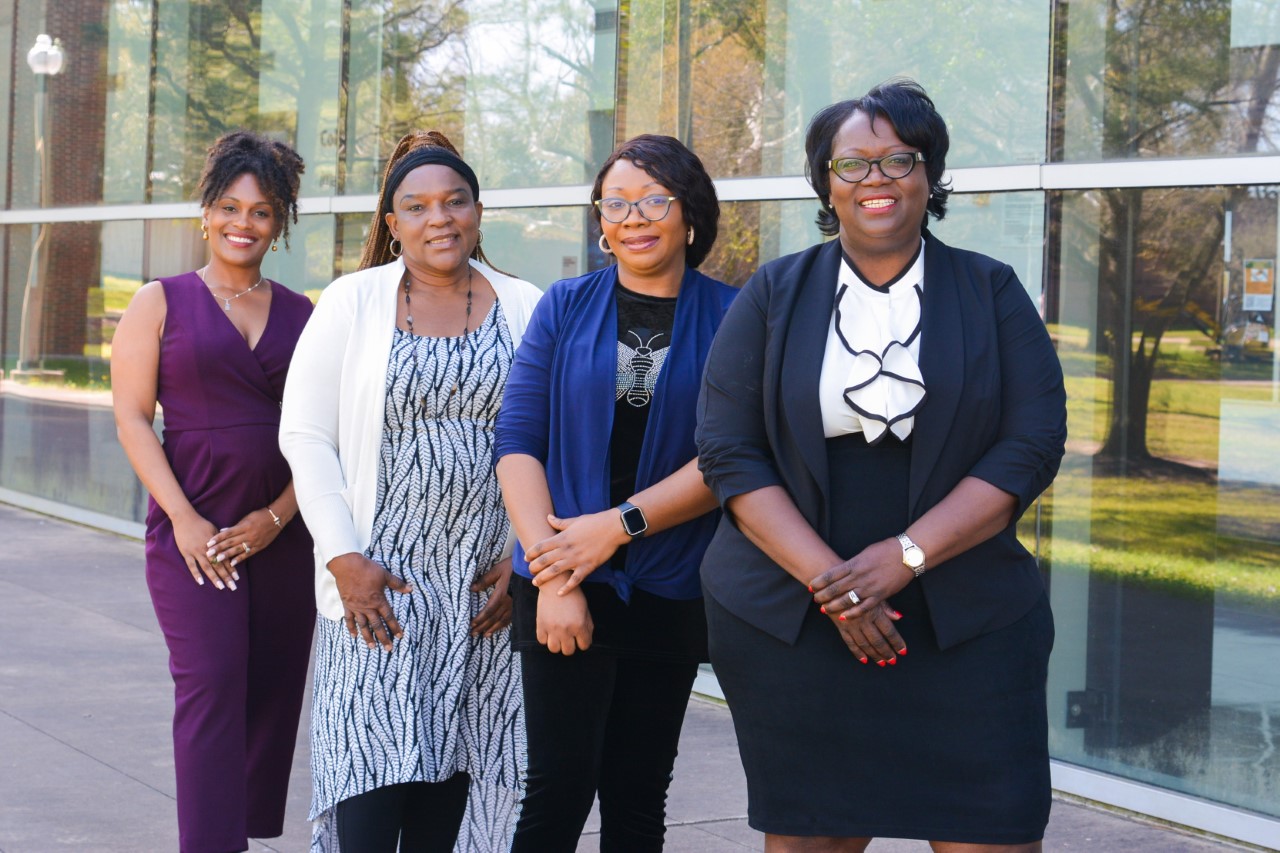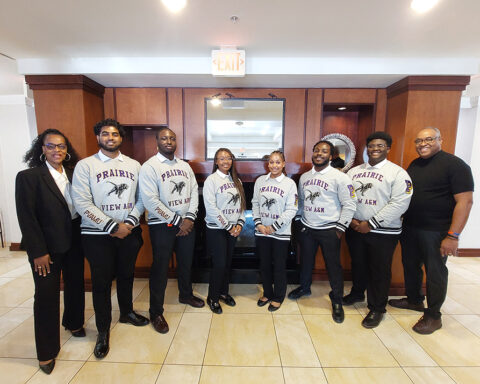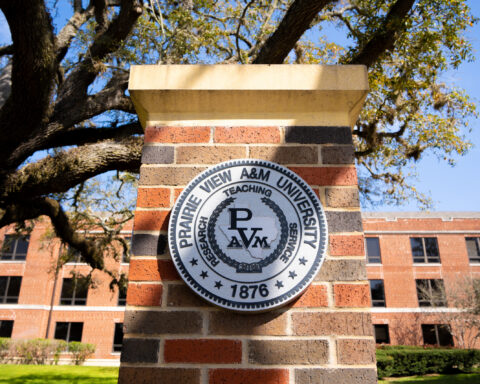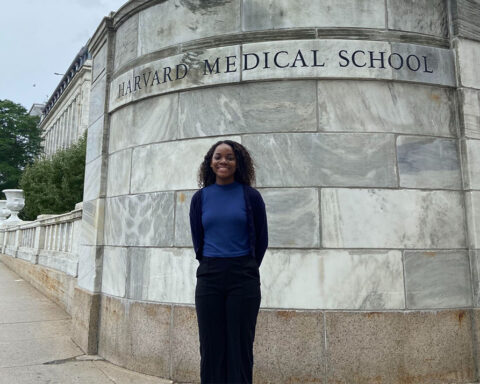By Kerry Laird
Historically, engineering has been a male-dominated industry. According to the U.S. Census Bureau, women make up nearly half of the U.S. workforce, but they represent a mere 27% of STEM workers. The data shows that computer and engineering occupations make up most STEM jobs in the U.S. at 80%. Yet, women in the field comprise only about 25% and 15% in computer and engineering jobs, respectively.
However, the perception that engineering requires brute strength and the type of inherent, mechanical knowledge possessed only by men has begun to erode along with the changing gender roles in American society.
In addition, data such as this underscores the significance of the increase in female enrollment in the Ph.D. engineering program at Prairie View A&M University, where its Roy G. Perry College of Engineering is reporting a nearly 45% growth in female enrollment over the past five years. More women are pursuing terminal degrees in cutting-edge fields such as artificial intelligence and cybersecurity.
“Since women are half of the U.S. population and underrepresented minorities are 40% of the population, it is imperative that we produce more female and minority engineers,” said Pamela Obiomon, Ph.D., dean of the College of Engineering at PVAMU. “The inability to fill millions of unfilled STEM and engineering jobs could result in a national security issue. We are excited that the Roy G. Perry College of Engineering is playing a significant role in addressing this problem by producing more female and underrepresented minorities with PhDs in engineering.”
The importance of participation is not lost on female students enrolled in the program.
“The female presence in the industry provides needed diversity in a field dominated by men,” says Lucy Nwosu, a Ph.D. student in electrical engineering with a focus in computer engineering. “Being a part of the program is a dream come true for me. It has given me an opportunity to acquire more knowledge in my field while pursuing groundbreaking research with experienced faculty members.”
Shaking Up the System
While the pandemic has placed some careers on hold and disrupted the typical work environment, the shift from on-location labor to work-from-home capabilities has opened the door for more women to pursue goals without compromising family responsibilities.
The increased female involvement in STEM and related courses at PVAMU is due, in part, to the online and hybrid program opportunities, said Nwosu, whose help in developing early COVID detection using artificial intelligence has led to groundbreaking research.
“The COVID-19 stay-home period has opened the eyes of many moms that they can go to school and still take care of their family,” she said. “PVAMU provided hybrid classes—a mix of online and in-person classes—during the pandemic, and this gave a lot of female students the opportunity to go back to school since they could attend classes from home.”
While this helps to provide a possible explanation for the increase in female enrollment in the program since the beginning of the pandemic, the enrollment increase data covers a five-year period, which partially predates the pandemic.
Natara McNary, a Ph.D. engineering student whose research interests include trustworthy artificial intelligence, natural language processing, and the psychological aspects of cybersecurity, points to December 2017 as the beginning of increased female inspiration on the campus of PVAMU with the appointment of Ruth Simmons, Ph.D., as the first woman president to lead the university.
“One of Dr. Simmons’ goals is to improve the representation of African Americans in STEM fields,” said McNary. “All that Dr. Simmons accomplishes in her career blazes a trail for me to become my aspirational self. She is a superstar in my eyes.”
In addition to Simmons’ appointment as the first female president at PVAMU, McNary said it was also the selection of Obiomon in September 2018 as the first female dean of the College of Engineering that led to McNary’s bolstered perception of feminine prowess.
“I like to believe that these two pivotal, history-making announcements had an impact on female doctoral engineering enrollment increase and retention,” said McNary. “Engineering is a historically white, male-dominated field, and we cannot be what we cannot see.”
Change Comes from Within
Along with the increased female enrollment, the PVAMU Ph.D. engineering program has also experienced a 57% growth in African American enrollment, as well as a 150% increase in overall enrollment.
However, many note that the increase in diversity is the most important, particularly for female students. McNary has taken the opportunity to help women around her achieve similar goals.
“I think the feminine presence in any arena is vital,” she said. “Engineering is a creative field. Engineers are the catalysts to an ever-evolving society. To innovate, contributions need to be thoughtful, intuitive, flexible, cooperative and enduring. These attributes are key to design and building in a revolutionary way. Those same attributes are innate in women.”
As an undergraduate instructor in the College, McNary embodies the pay-it-forward mentality as she mentors the women she teaches, encouraging them the same way she was inspired by the women in senior roles who encouraged her to strive for her education and research goals.
“Mentorship, especially from other Black women engineers, has been the social capital enabling me to develop my technical and leadership muscle while also broadening my network,” said McNary. “Through their experience and priceless advice, I have been able to rise in my own greatness, with lessened losses but plenty of lessons.
“At PVAMU, it is important for me to get to know other female engineers at all academic levels: to study with them, have lunch with them, uplift their academic profiles through advocacy, and to make a little noise—let the campus know we are here.”
In addition to her teaching and research responsibilities, McNary said she has worked with Obiomon to develop certification programming for undergraduates, as well as an engineering lecture series dedicated to showcasing women at work in the field of engineering.
“These varied mechanisms provide me with opportunities to plant seeds and inspire the young ladies in the engineering program to continue their studies,” said McNary. “I am not impressed being the only [woman] in the room, so I take responsibility to reach back and pull forward.”
Female engineers from outside the university also inspire female engineering students at PVAMU. The popular phrase “you can be it if you can see it” rings true for some of the students who look to current and past examples of brilliant African American female engineers who pushed the boundaries in their industry.
“Women can multitask and are gifted by nature,” said Blessing Chinemerem Dike, an electronic and computer engineering major. “They often come out the best in academic competitions and have often proven the best in the tech industry. This is verified by the achievement made by Katherine Johnson, a black-American mathematician, who as a NASA employee earned a reputation for mastering complex manual calculations of orbital mechanics, which was instrumental to the first US crewed space flights.”
The Drive for Equity in Technology
Approved by the Texas Higher Education Coordinating Board in January 2003, the doctoral program for electrical and computer engineering at PVAMU has grown leaps and bounds since its first all-male enrollment days.
McNary, who still had a child nursing when she began the program, said it was Obiomon, also a mother, who created privacy rooms for young mothers to facilitate rigorous feeding schedules.
“On the micro-level, the presence of women opens the campus’ eyes to some of the needs that may not be considered otherwise,” said McNary. “I do not believe those privacy room designations existed in previous years. As Black women engineers, our presence represents a long line of courageous excellence. Women in engineering require the village and the entire community to support us and encourage us. This way, we are successful inside and out of our homes to lead full lives and prioritize our dreams.”
McNary continued, “Black engineers, scientists, and technologists have an opportunity to work as a collective with interdisciplinary leaders to create platforms for an inclusive, human-centered future. I am keenly focused on creating trusted and inclusive technologies that contribute to an equitable society in the future.”





